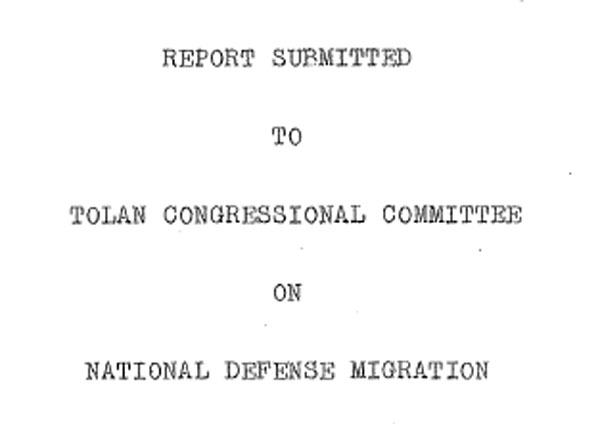May Archives treasure #2: Japanese internment records

One of the most controversial occurrences stateside during World War II was the internment of Japanese Americans following the Japanese attack on Pearl Harbor on Dec. 7, 1941.
The State Archives has a collection of documents related to internment of Washingtonians of Japanese descent. This collection is the second item featured for May’s Archives treasures online poll.
These records come from the Washington State Planning Council’s War and Post-War Planning Files, 1942-1945. The record series includes surveys and plans pertaining to war emergency planning and immediate post-war planning. Subjects include construction, agricultural growth, hospitalization, compulsory military service, Japanese internment, and the hiring of veterans. The collection contains newspaper clippings, correspondence, organizational charts, memos, bulletins, correspondence of the Committee for Post-Victory Employment, and other items.
Found in this collection is a report submitted in February 1942 to the Tolan Congressional Committee on National Defense Migration. The report was prepared by Emergency Defense Council of the Seattle Chapter of the Japanese American Citizens League. From the report’s foreword:
“We present this report in the hopes that the facts and figures contained in it may assist the Congressional Committee to make its decision on the issue of evacuation of Japanese nationals and their citizen children in a manner most advantageous to the war effort of the United States, and in keeping with the traditions of fairness and justice that all Americans hold dear.”
Other notable documents in the collection include this 1943 letter to Gov. Arthur Langlie from the Pacific Coast Committee on American Principles and Fair Play, and a 1942 memo to Langlie regarding Japanese farms evacuated and taken over in King and Pierce counties.
It’s important to note that Archives does not have federal internment records. These records of Japanese American Internment and Relocation can be obtained through the National Archives.